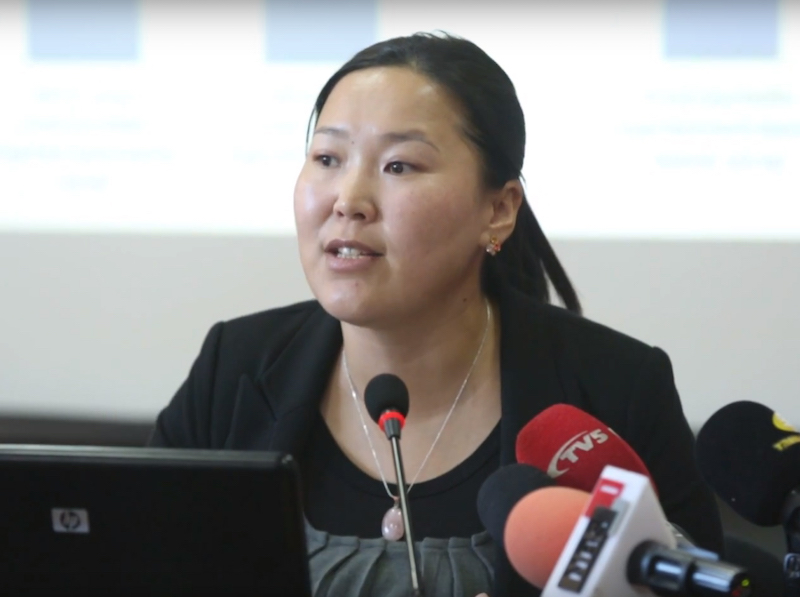
The Research Department of the Press Institute of Mongolia monitored media outlets during the parliamentary and city council elections of 2016, and presented the results of their work to the public on Thursday.
Experts compared news articles released during the 2016 election campaign with news articles published before the start of the 2016 election campaigns, and to those published during the 2012 parliamentary elections. Six newspapers, five websites, and the Facebook accounts of 24 journalists were included in the evaluation.
Since the election campaign began, twice the number of stories related to the elections were published in newspapers and five times the number of election stories appeared on websites and social media, according to the Press Institute.
Press Institute spokesperson G.Gunjidmaa noted that during the 2016 parliamentary elections, media outlets focused on providing facts about candidates that would be useful for voters. In particular, regularly published newspapers published fewer articles with political and electoral agendas than they did in 2012, and distributed more journalistic work and useful information for voters. According to the Press Institute’s assessment, informative articles for voters appeared with 10 times more frequency on news websites and quadrupled in local daily newspapers.
Researchers concluded that 67 percent of work published by news outlets during the 2012 election had political propaganda, whereas this year, 37 percent had political propaganda. This change is attributed to the media and press adhering to the Election Law, and an increased industry-wide focus on journalistic production, G.Gunjidmaa explained.
LESS NEGATIVE CAMPAIGNING FOUND IN NEWSPAPERS AND WEBSITES
Regularly published newspapers and news websites had relatively fewer negative stories related to the election, says G.Gunjidmaa. She added that articles and posts on Facebook were less biased compared to Twitter, which was used for a number of negative and prejudiced statements.
POSITIVE STORIES ABOUT THE MPP DOMINATED THE MEDIA
The Press Institute’s study showed that media outlets nationwide published an overwhelming number of positive stories about the Mongolian People’s Party and more negative stories about the Democratic Party during the election campaign. The opposite perspectives were reflected in Ulaanbaatar, G.Gunjidmaa reported.
She noted that media outlets didn’t publish articles that were noticeably partial to female candidates.
“Female candidates were strategically supported in previous elections to ensure gender equality, but this time, no such reporting was observed.”
24 ETHICAL VIOLATIONS RECORDED
The 2016 election was different from previous elections, as it was conducted with a media ethics council. The council recorded 24 cases of ethical violations made by journalists. Specifically, 14 mistakes were made by newspapers and 10 mistakes were made online.
Complaints were made regarding political propaganda, personal prejudice, and some articles being published without an author identified.

